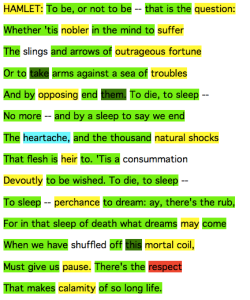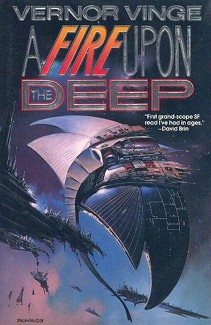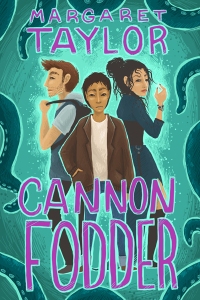Change of Hosting
I’m moving this blog over to self-hosting at steamtrainsandghosts.com. Update your bookmarks if you need to.
The Mechanical by Ian Tregillis

Full of cool ideas, but with a frustrating writing style.
In an alternative 1926, the Dutch have taken over the world using armies of alchemical slaves. Magical compulsions keep the Clakkers in line. What could go wrong?
Jax, a household Clakker, inevitably comes into contact with a lens that frees him from his geasa. He has to run up a steep learning curve to deal with his newfound freedom. Meanwhile, Berenice Charlotte de Mornay-Périgord, spymistress of what’s left of France, dreams of overthrowing the Dutch Empire. Her attempt to reverse-engineer a military Clakker ends in disaster. Jax and Berenice’s adventures bring them together and into an uneasy alliance.
There’s also Visser, who should never have been a viewpoint character in the first place. More on him later.
The Mechanical is full of super cool ideas. Dutch alchemical robots. Robots versus glue. A secret language for slaves. A clockwork Green Lantern. Weaponized Calvinism. I like a book that sends me to Wikipedia, and The Mechanical had me looking up Huygens, Spinoza, and what the pineal gland actually does (it makes melatonin).
Tregillis squanders that potential with an overwrought writing style. He goes in for eyeball kicks and cheap grossouts, while I am a subtext and quiet horror kind of gal. He does scare me when he mentions in passing that “Don’t harm humans” is the lowest priority of the Clakkers’ hierarchical metageasa. He lets me figure out the implications of that for myself. But most of the time I’m treated to stuff like this:
The central courtyard of the inner keep looked and smelled like a charnel house. Berenice struggled to make sense of what she saw through the pink haze of one blood-clotted eye and the mounting fog of pain. A crumpled silver funicular lay amidst the crushed rubble of the ground station, its windows shattered and empty. Bodies strewn like wreckage. Parts and whole. Blood puddles.
It’s not scary because I know exactly what’s going on. Most of the book is gratuitous; I figured out pretty early that I could skip to the end of the fight scenes and the chase scenes to see who makes it and I wouldn’t miss much.
When body fluids aren’t spattering on walls, Tregillis raises an interesting philosophical question about free will. The characters regard free will and freedom as the same thing. Even Jax himself thinks enslaved Clakkers have no free will, and it is somehow granted when the geasa are taken away. But we can see him struggle against his geasa (and fail) and say whatever he wants to his friends because it never occurred to his makers to stop him. The Clakkers aren’t missing anything, they’re willed beings with shackles added. I really hope that Tregillis is working up to a point that free will doesn’t mean getting to do what you want.
Jax is too clever for belief. He’s lived for 118 years with his every motion spelled out for him, so I expected him to feel overwhelmed by having to make so many decisions so fast. But no, he runs the entire city of New Amsterdam a merry chase, making all the right decisions, then he hijacks an airship.
While he clings to the belly of the thing in midair he decides he needs to recruit the Clakker mind inside it to his side so they can both escape. He thinks the eyes are the windows of the soul and slams his magic lens into the airship’s eye. Which works. Earlier, he got his freedom when the lens got lodged inside his chest. And he hadn’t taken the lens outside of himself yet, so he had no good reason to think he could survive doing that. And in other parts of the book, he’s not sure if enslaved Clakkers even have souls.
The Dutch people don’t make sense, either. They go out of their way to pick on Clakkers even when they’re working properly. All of the people. Jax even notes that he thinks humans are all the same. He should be wrong. I’d expect to see at least a few Dutch people take them for granted, try to take them apart and get arrested, fetishize them, demonize them, fight for the abolition of slavery, but they all seem to react to Clakkers the same way. The Dutch Empire doesn’t have to work hard at their totalitarian state at all.
Meanwhile, Luuk Visser is a blithering idiot. He’s a secret Catholic priest, working as a spy for the French from within the Hague. He learns that most of his spy cell has been executed and one woman taken prisoner. In his guise as a Protestant pastor, he asks to see the prisoner and then kills her to keep her knowledge out of Dutch hands. Reasonable enough. But then the moron tries to go home. Of course Dutch agents are waiting for him there and take him prisoner.
And then he gets enslaved under geasa and turned into a machine for the Dutch. Since he can’t make decisions, he stops being an interesting character. I would rather have Jax and Berenice hear rumors that Something Very Bad happens to Visser, then later witness the zombie-like Visser thing. That would have been scarier.
Which makes Berenice my favorite character. She’s the only main character who’s a mere mortal, she’s not too good or too evil, and above all, she makes sense. She violates medical ethics after a cold calculation that her work will benefit France. When she brings a military Clakker into a French fortress to study it, it breaks free and kills over thirty people. Does she mope? She figures out a man sabotaged her glue and hunts him down. And she has a nuanced view of Clakkers. She accepts they’re sentient, but she’s still willing to take advantage of them. Her alliance with Jax could be a lot of fun.
I’m excited to see where Tregillis is going with all the neat ideas in this series, but I think I will skip to the end to see who makes it.
Beef Creature

What do you call one of these?

Image courtesy of Wikipedia
A whole herd of these animals are cattle, a girl is a cow, and a boy is a bull. But what’s just one of them if you don’t know what it is?
Gabe Doyle at UC San Diego already beat me to an examination of this question. His main point is that there is no word for the critter, though most people seem to have settled on “cow.” That solution works pretty well, since most of the ones you’ll ever see are cows. But I think it would be cool if one of the animals was called a “beef.”
Smashwords Sale on Now
Hey, all. Just wanted to let you know that my entire listing of books is 50% off on Smashwords for the month of July.
The Layers of English on GitHub
Thanks to the positive response my last post got, I’ve put the source code for The Layers of English up on GitHub. You can find it here:
The Layers of English – Anglo-Saxon, French, Latin

The English language is a wonderful mess. After centuries where England got invaded by Romans*, Angles, Saxons, Vikings, and Normans, and then the nineteenth century where the English turned around and colonized one quarter of Earth’s landmass, the language has words from all over the world. English speakers seem to love picking up everybody else’s words whenever we come into contact with them.
English words come from three main sources. The oldest are the Germanic words from the Angles, Saxons, and the Vikings. The words that make up the nuts and bolts of the language like “the,” “of,” “and,” and “with” are Germanic. In 1066 Normans invaded and brought Old French with them, which evolved into words like “cuisine,” “gallant,” and “herald.” Meanwhile Latin and Greek were the languages of educated people throughout the Middle Ages and their words migrated into English in scientific and technical contexts. Words like these include “phosphorylation” and “poikilotherm.” This migration is still happening today as scientists are in the habit of stringing Greek and Latin roots together to name new ideas.
You, as a writer, can exploit the layers of English to control how your work sounds. You can dial up the register, towards Latin and Greek, to sound cool and cerebral. Or you can dial it back to the German end to sound gutsy and raw.
I wrote a computer program that lets you visualize how this works. It color codes text based on word origins.
All the texts I ran through the program are more than half Anglo-Saxon and Germanic. These words make up the core of the English language. Note how Dr. Seuss and Shakespeare run to the Germanic end, the political and scientific texts are more French, and the scientific paper is a whopping eight percent Greek and Latin words.
You can use this tool to see where a writer makes a shift in register as well.
I’d eventually like to make this program a Web app. In the meantime, send me a text you like and I’ll analyze it.
* A Redditor pointed out to me that the people living in the area at the time the Romans invaded spoke Celtic languages, which aren’t closely related to English, so the Roman invasion wouldn’t have had that much of an effect on English evolution.
TECHNICAL STUFF
This code is written in Python. I’m new to programming, so I learned a lot while writing it – about dictionaries, variable scope, JSON, and regex.
I used word lists on Wikipedia to make an etymology dictionary. Then I wrote a script that reads in the text, looks it up in the dictionary, then adds HTML tags based on the word’s etymology. It outputs an HTML file.
I handled Greek words a bit differently, since there is no definitive list of English words with Greek roots. I made a list of Greek roots (again from Wikipedia). If no other etymology can be found, the script searches for Greek roots within a word. As you can see, this leads to some false positives. Furberg, a Norwegian last name, got marked Greek because it has the letters “erg” inside it.
I checked the program on the Ten Hundred Most Used Words that were inspired by Randall Munroe and reprinted by Theo Sanderson. I took the words that the program had missed and manually looked them up on the Online Etymology Dictionary, then added them to my dictionary’s vocabulary. I wanted even more vocabulary, so I ran the program again on the first five thousand of this list of the twenty thousand most common words online. Then I went back and manually added more words.
I added Arabic etymology because “coffee” showed up in the Ten Hundred Most Used Words list, and I like coffee.
I’d be happy to share my code and I would love a code critique.
Text sources:
The Gettysburg Address
Hamlet’s Soliloquy
Hop on Pop
The United Nations Declaration of Human Rights
A Structure for Deoxyribose Nucleic Acid
Ancillary Justice by Ann Leckie
 The main character is a spaceship. And she is hell bent on revenge.
The main character is a spaceship. And she is hell bent on revenge.
It is not the plot that makes Ancillary Justice by Ann Leckie shine – the above is all there is to know about it. Nor is it the setting, which is standard space opera fare. It’s the technical mastery it takes to write a first-person novel from the point of view of an AI hive mind. In some of the early chapters Leckie writes from the first person omniscient. I didn’t even know you could do that. Look:
“Is she coming or not? If she isn’t coming she should say so.”
At that moment Lieutenant Awn was in the bath, and I was attending her. I could have told the lieutenants that Lieutenant Awn would be there soon, but I said nothing, only noted the levels and temperature of the tea in the black glass bowls various lieutenants held, and continued to lay out breakfast plates.
Near my own weapons storage, I cleaned my twenty guns, so I could stow them, along with their ammunition. In each of my lieutenants’ quarters I stripped the linen from their beds. The officers of Amaat, Toren, Etrepa, and Bo were all well into breakfast, chattering, lively. The captain ate with the decade commanders, a quieter, more sober conversation. One of my shuttles approached me, four Bo lieutenants returning from leave, strapped into their seats, unconscious. They would be unhappy when they woke.
Justice of Toren/One Esk Nineteen/Breq has a bizarre sense of identity. In the first half of the book, every other chapter describes the backstory, in which the Justice of Toren is a battleship crewed by dozens of officers and running her software in the brains of hundreds of meat-puppet human bodies. In the present day, the Justice of Toren has all been destroyed save for one puppet body. She still thinks of herself as a spaceship. And she thinks of herself as having already been murdered.
What the hell is Justice of Toren/One Esk Nineteen/Breq? She’s AI software running on a human brain. To make things even weirder, another character points out that it’s probably possible to bring back her body’s original owner (some nameless political prisoner). And her remaining body earns command of a ship, so now she’s a spaceship inside a human inside a spaceship.
A lot of the philosophical parts of the book explore what happens when a mind becomes divided against itself. This doesn’t just apply to the spaceship characters.
On the other hand, there’s so much philosophy in the book that not much happens. Add to that a nonlinear plot, an unreliable narrator, and characters who like to talk around the point in a way that would make Jane Austen proud, and you have yourself a tough read. I recommend looking up all the spoilers online first so you can know what’s going on. Then you can sit back and enjoy the thought experiment.
Franconia Sculpture Park
I went to a wedding at the Franconia Sculpture Park last week.











Wild Seed by Octavia Butler
 They are the only two immortals in the word: Anyanwu, an Ibo woman who can repair her body at will, and Doro, a spirit who possesses bodies and devours souls. They hate each other with a passion; the loneliness of immortality makes them need each other.
They are the only two immortals in the word: Anyanwu, an Ibo woman who can repair her body at will, and Doro, a spirit who possesses bodies and devours souls. They hate each other with a passion; the loneliness of immortality makes them need each other.
I’ve kept hearing Octavia Butler’s stuff is really good. I only waited this long to read something of hers because I didn’t know where to start. Butler broke into print in 1976 with Patternmaster then wrote successive prequels to it. Wild Seed is the earliest in the sequence of events and regarded by John Pfeiffer as the best book she ever wrote.
The language of this book struck me right away. Check out this passage near the beginning:
Anyanwu looked away, spoke woodenly. ‘It is better to be a master than to be a slave.’ Her husband at the time of the migration had said that. He had seen himelf becoming a great man – master of a large household with many wives, children and slaves. Anyanwu, on the other hand, had been a slave twice in her life and had escaped only by changing her identity completely and finding a husband in a different town. She knew some people were masters and some were slaves. That was the way it had always been. But her own experience taught her to hate slavery. She had even found it difficult to be a good wife in her most recent years because of the way a woman must bow her head and be subject to her husband. It was better to be as she was – a priestess who spoke with the voice of a god and was feared and obeyed. But what was that? She had become a kind of master herself. ‘Sometimes, one must become a master to avoid being a slave,’ she said softly.
I think I count a dozen words in that entire paragraph with French or Latin origins. The rest of it is Ango-Saxon, emotional and gritty. She introduces complex ideas about slavery, gender, dominance and submission with deceptively simple language. And she keeps it up this way for an entire novel.
Wild Seed is also about game theory, since Anyanwu is trapped in a game with Doro she can’t win. And it’s about our relationship with our bodies, since Anyanwu’s super power is her body and Doro has no body at all. He’s fascinated with breeding human beings to each other because he’s impotent. The book is everything N. K. Jemisin was trying to cover with The Hundred Thousand Kingdoms, but Octavia Butler is a master at it. The book will make you think. A lot of it you’ll wish you weren’t eating lunch while you were reading.
Wild Seed feels like an epic love story even though it’s a fairly short book. The ending was abrupt, especially for me, because my edition includes a big chunk of Mind of my Mind. I got three quarters of the way through the book, saw the end, and had to page backward looking for a climax.
Other issues include that you can tell it’s a prequel. Many aspects of the psychic humans are really only in there because of the psychics later in the series. And Doro’s breeding program has a surprising lack of Asian people considering that a) most people in the world are Asian and b) Doro’s willing to take advantage of all the genetic material he can get. But these are quibbles. This is a beautiful, thought-provoking, challenging book.
A Fire Upon the Deep by Vernor Vinge
 A book set in a galaxy with a peculiar quirk of physics: the closer to the galactic core you get, the less intelligence and stock science fiction goodies like faster-than-light travel are possible. A group of explorers punch into the galactic edge, the Transcend, and wake up a five-billion-year-old Blight that likes to eat souls.
A book set in a galaxy with a peculiar quirk of physics: the closer to the galactic core you get, the less intelligence and stock science fiction goodies like faster-than-light travel are possible. A group of explorers punch into the galactic edge, the Transcend, and wake up a five-billion-year-old Blight that likes to eat souls.
A Fire Upon the Deep is two books, really. One book is a space opera in which Ravna Bergensdot and Pham Nuwen race to find a cure for the Blight. The other book is a work of xenofiction in which the only cure for the Blight crash lands on a planet of hive-mind ratdogs.
Space opera just isn’t my bag, so I found myself slogging through those parts to get to the xenofiction parts. There’s nothing especially wrong with it, Ravna and Pham are nice enough, but it’s all stuff you’ve seen before if you have a passing knowledge of science fiction.
But the ratdogs! (They just call themselves people, but a girl who crashes on their planet nicknames them Tines.) There isn’t enough xenofiction out there and the work Vinge has done with the Tines is top notch. Each individual person is made out of four to six creatures that communicate by ultrasound. Vinge thinks through a lot of the implications, like the naming conventions, what happens when two of the major characters get each other pregnant, and what it’s like to see through six pairs of eyes at once.
One of the most interesting parts is the Tines’ relationship with identity. Each group person can accomplish something like immortality by pulling a careful Ship of Theseus. They make themselves bigger by giving birth, and they make new people by splitting in half or splicing together bits of themselves and their friends. They fear becoming unrecognizable like we fear death. Vinge pulled off a work of hard science fiction where souls are very much a part of daily life.
The book’s full of wonderful ideas. None of the characters are especially strong, though the Tine characters make up for it by being so damn cool. The ending relies on a lot of coincidences to get all the characters onto the same stage at the same time. I would have rather Ravna and Pham had landed on the Tines’ world early on and raced to stop the Blight on the ground. Even better if Vinge had dispensed with the space opera entirely and written a book about the Tines’ political intrigues, Watership Down style.
I have a nitpick about Pham Nuwen’s almost but not quite Earth name. He’s clearly supposed to be Pham Nguyen because he’s described as a living fossil (hard vacuum mummification accident), derived from an Asian culture, and nobody can pronounce his last name to save their lives. So why not just call him Pham Nguyen? The slightly-offness of his name makes by brain itch.
The Tines are so cool that this book’s worth reading on their strength alone.
